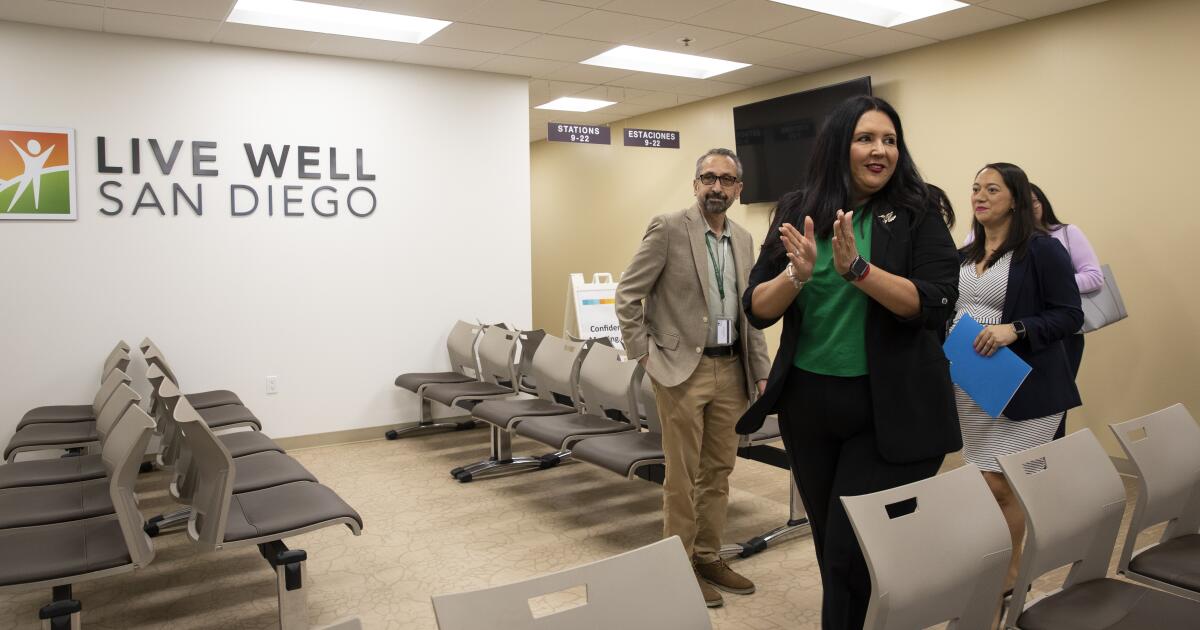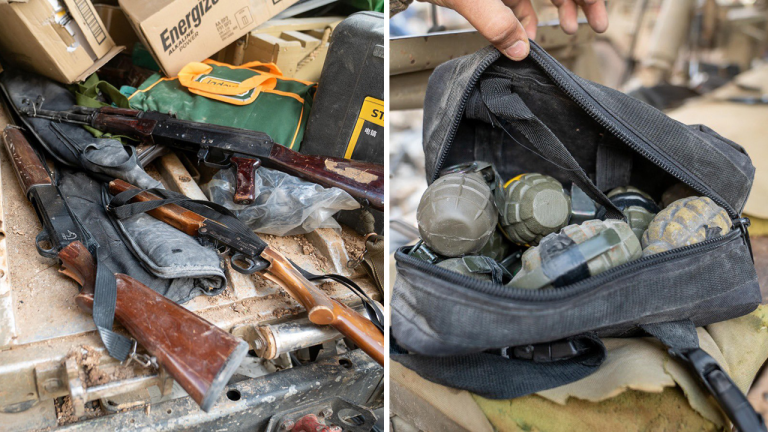

San Diego County will create a second welcome center for immigrants and refugees settling in the region, after supervisors voted unanimously Tuesday to move forward with the plan amid a recent influx of migrants.
The decision lets the Office of Immigrant and Refugee Affairs accept a $430,529 state grant to establish the center and also sets aside another $101,000 in county funds for it.
It will be the first such county facility in North County, where officials say immigrant and refugee assistance is most needed. Nearly 23 percent of San Diego County residents were immigrants or foreign-born as of 2021, and nearly two-thirds of those lived in North County, Census data shows.
The county will now begin considering potential sites for the new center.
San Diego County currently operates only one welcome center, inside the South Region Live Well Center in National City.
The welcome center is meant as a hub for migrants planning on staying in San Diego to access information about resources, ranging from resettlement to health care. A separate temporary migrant center currently set up at the Iris Transit Station in Otay Mesa, by contrast, focuses on helping migrants continuing on to other parts of the U.S.
The county has resettled nearly 12,700 refugees since 2018, making the region one of the largest recipients of refugee arrivals in California, behind only Sacramento and Los Angeles, immigrant affairs director Lucero Chavez Basilio said. In the last year alone, her office has served nearly 1,400.
The state has designated San Diego County one of eight refugee-impacted counties. In addition, more than 20,000 migrants, many of them asylum seekers, have been dropped off at transit stations across the region since Sept. 13, according to the county.
Since it opened in March, the current welcome center has served over 600 clients. Six community partner organizations provide resources, services and basic necessities on site in various languages.
The center was one of the first successes of the immigrant affairs office, which was created in 2021 to build on existing county refugee programs.
“This is about making sure the County is bridging the gap to meet the needs of our diverse communities,” said Supervisor Terra Lawson-Remer. “These services help make people more self-sufficient, which ultimately helps our entire region succeed.”
The funds for the center were awarded to the county through the Local Immigrant Integration and Inclusion grant — an initiative by the Governor’s Office of Business and Economic Development to provide $8.2 million in one-time funding to support the state’s immigrant populations.
Supervisors also agreed to allocate another $101,000 to offset the cost of the North County center through 2025. Funding beyond then will be incorporated into future operational plans.
During public comment Tuesday, a handful of opponents of the center argued that county resources should be dedicated to other issues like homelessness.
In support of the motion was Erin Tsurumoto Grassi, policy director for Alliance San Diego, a nonprofit that unites organizations that promote equality, civic engagement and human rights.
“We may not always agree with what OIRA is doing or how they’re approaching things, but I think we have to make certain to continue to have the office and work through those problems together, so that we can continue to best serve all San Diegans,” she said.
County officials also gave updates Tuesday on their efforts to assist local aid groups serving asylum seekers.
Earlier this month, the county allocated $3 million to nonprofits providing migrant services, such as translation assistance, transportation, Wi-Fi, food and restrooms, at the Iris center, and recently granted management of the funds to SBCS — formerly known as South Bay Community Services.
Over the last year, the immigrant affairs office has helped migrants improve their language skills and access job training, housing education, emotional wellness and family support. Recently, it has also stationed multilingual community health workers at migrant release sites to help them navigate resources.
The office is still looking for grant money to implement a comprehensive, countywide immigration preparedness plan. Chavez Basilio said long-term federal funding is still critically needed.
Supervisors last month declared a humanitarian crisis for asylum seekers at the border and requested more federal support.







